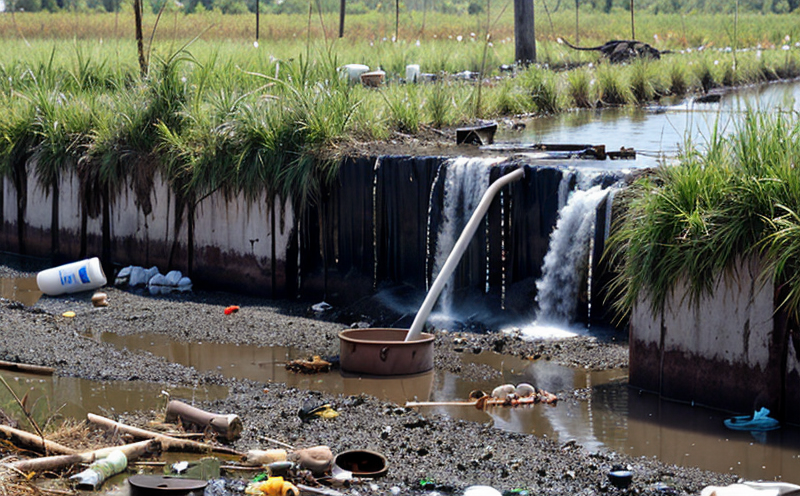Soil Pollutant Testing
Soil pollutant testing is a critical component in ensuring environmental and public health compliance. This service focuses on identifying the presence, concentration, and types of pollutants within soil samples to assess potential risks. For quality managers, compliance officers, R&D engineers, and procurement professionals, this test provides essential data for risk assessment, remediation planning, and regulatory compliance.
Our laboratory adheres strictly to international standards such as ISO 17025, which ensures the reliability and accuracy of our testing methods. We employ state-of-the-art instrumentation like inductively coupled plasma mass spectrometry (ICP-MS) for heavy metals analysis and gas chromatography-mass spectrometry (GC-MS) for volatile organic compounds (VOCs).
The process begins with the collection of soil samples from specified locations, followed by thorough preparation. This includes sieving to ensure consistent particle size, digestion using appropriate acids, and extraction techniques tailored to specific pollutants. The prepared samples are then analyzed using specialized equipment designed for detecting trace amounts of contaminants.
Our testing capabilities cover a wide range of pollutants including heavy metals (e.g., lead, mercury), pesticides, polycyclic aromatic hydrocarbons (PAHs), and volatile organic compounds (VOCs). Each test is conducted in accordance with relevant standards such as EPA Method 3052 for total petroleum hydrocarbon analysis. Results are reported comprehensively, detailing the detected pollutants along with their concentrations.
Understanding the environmental impact of pollutants helps in developing effective mitigation strategies. Our laboratory collaborates closely with clients to interpret results and provide actionable recommendations. This service is particularly important for industries involved in construction, agriculture, and manufacturing where soil contamination can pose significant risks.
| Standard | Description |
|---|---|
| ISO 17025 | International standard for the competence of testing and calibration laboratories, ensuring high-quality results. |
| EPA Method 3052 | American Environmental Protection Agency method for measuring total petroleum hydrocarbon content in soil. |
| ASTM D7419 | American Society for Testing and Materials standard for the determination of polycyclic aromatic hydrocarbons by high-performance liquid chromatography (HPLC). |
Applied Standards
The application of rigorous standards ensures the accuracy and reliability of our soil pollutant testing services. Our laboratory adheres strictly to international standards such as ISO 17025, which guarantees the competence of our testing methods.
Benefits
- Precise identification and quantification of pollutants in soil samples.
- Compliance with environmental regulations and standards.
- Support for risk assessment and remediation planning.
- Accurate data for informed decision-making by quality managers, compliance officers, R&D engineers, and procurement professionals.
Competitive Advantage and Market Impact
Our soil pollutant testing service offers a competitive edge through our commitment to cutting-edge technology and adherence to international standards. By providing precise, reliable results, we help clients stay ahead in the market by ensuring they meet regulatory requirements and minimize environmental impact.
- Innovative use of ICP-MS for heavy metals analysis.
- Advanced GC-MS technology for detecting volatile organic compounds.
- Comprehensive reporting tailored to specific client needs.
- Close collaboration with clients to interpret results and recommend actionable strategies.





